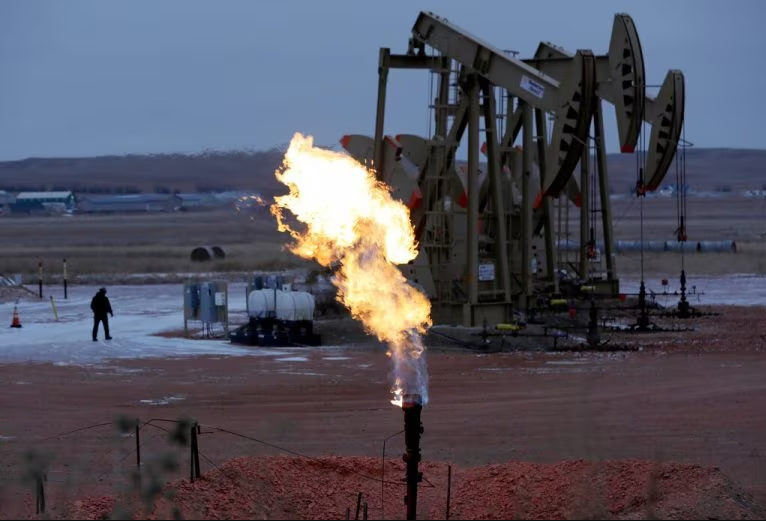Oil prices surged on Thursday, reaching their highest levels since 2014, as the US imposed sanctions on two shipping companies for violating a price cap on Russian crude exports. The move raised concerns about global supply and demand amid the ongoing conflict in the Middle East.
The US Treasury Department announced that it had sanctioned two companies based in Singapore and one in Panama for transporting Russian oil priced above the $60 per barrel limit agreed by the G7 group of nations in December 2022. The sanctions aim to punish Moscow for its invasion of Ukraine and curb its oil revenues.
The sanctions also apply to anyone facilitating the maritime transport of Russian oil above the cap, including traders, financiers, insurers, flaggers, and customs brokers. The US said it would continue to monitor and enforce the price cap mechanism, which the European Union and other countries support.
The news boosted oil prices, which were already rising due to the escalating conflict in the Middle East. Israel launched a ground invasion of Gaza on Friday after a week of airstrikes and rocket attacks by Hamas. The violence has killed hundreds of people and displaced thousands more.
The conflict has raised fears of a wider regional war that could disrupt oil production and exports from major OPEC members such as Saudi Arabia, Iran, and Iraq. OPEC has kept its forecast for oil demand growth for 2023 and 2024 unchanged, citing signs of a resilient world economy and expected demand gains in China.
On Thursday, Brent futures settled up $4.89, or 5.7%, at $90.89 per barrel. US West Texas Intermediate (WTI) crude gained $4.78, or 5.8%, to $87.69 a barrel. Both benchmarks posted their highest daily percentage gains since April and their highest weekly gains since February.
Analysts said the oil market faced a supply crunch that could push prices even higher in the coming months. They also warned that high oil prices could fuel inflation and hurt economic recovery from the pandemic.
“The oil market is anticipating that the US will more strictly enforce sanctions on both Russia and Iran, and that will lead to a reduction in supplies,” said Andrew Lipow, president of Lipow Oil Associates. “At the same time, demand is recovering as more countries ease lockdowns and vaccinations increase.”
However, some experts also said that high oil prices could encourage more production from non-OPEC countries, such as the US shale industry, eventually easing supply tightness. They also said that the demand for oil could face headwinds from the transition to cleaner energy sources and technologies.
“The oil market is bullish right now, but there are also risks and uncertainties ahead,” said Tamas Varga, analyst at PVM Oil Associates. “The geopolitical situation is volatile, the pandemic is not over yet, and the energy transition is accelerating.”
Source: Reuters



